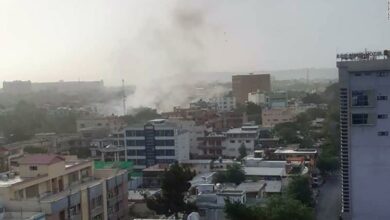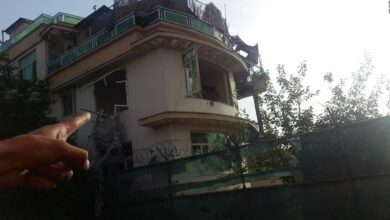London–Al Qaeda's most influential English-language preacher said revolts sweeping the Arab World would help rather than harm its cause by giving Islamists freed from tyranny greater scope to speak out.
Western and Arab officials say the example set by young Arabs seeking peaceful political change is a counterweight to Al-Qaeda's push for violent militancy and weakens its argument that democracy and Islam are incompatible.
But Al-Qaeda preacher Anwar al-Awlaki, in an article published online on Tuesday, said the removal of anti-Islamist autocrats meant Islamic fighters and scholars were now freer to discuss and organize.
"Our mujahideen brothers in Tunisia, Egypt, Libya and the rest of the Muslim world will get a chance to breathe again after three decades of suffocation," he wrote, using a term that refers generally to Islamic guerrilla groups or holy warriors.
"For the scholars and activists of Egypt to be able to speak again freely, it would represent a great leap forward for the mujahideen," wrote Awlaki, an American of Yemeni origin who is believed to be hiding in southern Yemen.
He said it did not matter what sort of government succeeded Arab autocrats, as these were unlikely to be as repressive. Imagining that only a Taliban-style regime would benefit Al-Qaeda was "a too short term way" of looking at events.
"We do not know yet what the outcome would be (in any given country), and we do not have to. The outcome doesn't have to be an Islamic government for us to consider what is occurring to be a step in the right direction," he said.
"In Libya, no matter how bad the situation gets and no matter how pro-Western or oppressive the next government proves to be, we do not see it possible for the world to produce another lunatic of the same calibre of the Colonel (Qadhafi)."
Awlaki said the revolts had broken "the barriers of fear" among Muslims whose "defeatism" under tyranny had deepened after Algeria's crushing of an Islamist uprising in the 1990s.
Awlaki made his remarks in the fifth edition of "Inspire", an online Al-Qaeda magazine aimed at Muslims in the West.
The publication is produced by Al-Qaeda in the Arabian Peninsula (AQAP), an arm of Al-Qaeda responsible for the group's most spectacular attempted attacks in recent years.
Another writer, called Yahya Ibrahim, said Al-Qaeda was not against regime changes through protests but was against the idea that the change should be only through peaceful means to the exclusion of the use of force.
Inspire also contained an interview with AQAP military leader Qasim al-Raymi, also known as Abu Hurairah al-Sana'ani, one of the world's most wanted Islamist militants.
He called on Muslims living in the West to kill groups of "Jews and Christians" whenever they heard of US drone strikes in Pakistan or Israeli killings of Palestinians.
Such attacks "would stop the striking, killing, occupation, humiliation and disgrace of our holy places that America and the West perpetrates."
Yemen has been at the centre of Western security concerns after AQAP launched failed plots to bomb cargo airliners in October 2010 and to destroy a US-bound passenger plane in December 2009.




